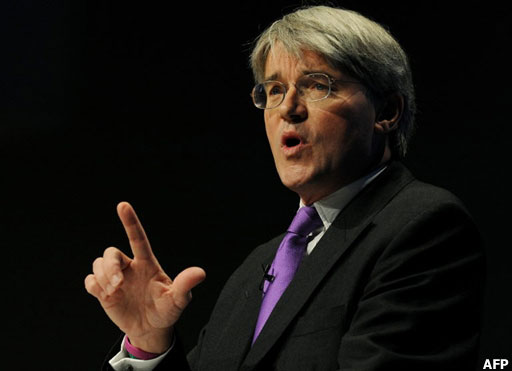The UK Department for International Development (DFID) disclosed its funding plans for Burma on Monday, making the UK the largest bilateral aid donor...
Chiang Mai (Mizzima) – The UK Department for International Development (DFID) disclosed its funding plans for Burma on Monday, making the UK the largest bilateral aid donor.
 Aid to be supplied by the UK over the next four years will total approximately £180 million (US$ 300 million), making it the No. 1 bilateral aid donor to Burma.
Aid to be supplied by the UK over the next four years will total approximately £180 million (US$ 300 million), making it the No. 1 bilateral aid donor to Burma.
Secretary of State for International Development Andrew Mitchell presented the plan to Parliament on Monday.
‘The UK will spend an average of £46 million (US$ 75 million) per year in Burma until 2015. This support is delivered through the United Nations, international and local NGOs and community groups’, he said.
A statement gave a breakdown of the primary goals of the next four years of assistance including to, ‘Make sure that more than 127,000 mothers give birth more safely and prevent more than 150,000 unintended pregnancies.’
The aid also aims to aid more than 1.8 million people at risk of Malaria, to support 277,000 children through primary school, to provide 110,000 women with more access to affordable credit, help 92,000 women and men increase their food production and to ‘help community groups that are giving people greater choice and control over their lives’.
Paul Whittingham, the head of the Office of DFID in Burma, told Mizzima that aside from large funding being channelled through UN agencies to government-approved areas, the new funding program will include target some conflict zones and displaced Burmese people.
‘It’s a major priority of Andrew Mitchell for Burma, and has consistently been a priority for us in the UK to support the victims of conflict in Burma’, he said.
‘We do that in a number of ways. We do that by providing support to refugees in camps on the Thai border…we do that by providing support to groups who can get into the country from the other side of the border, where this is appropriate and where they are able to, and we do this by providing support to the organisations that are inside Burma who can reach internally displaced people living in conflict areas, and that will continue to be a priority for us’.
Asked about cooperation between the UK and the Burmese authorities, Whittingam told Mizzima, ‘We in the EU have set ourselves very strict rules on how we deliver aid inside the country, and the UK has been at the forefront of those rules. We require ourselves to consult widely on how this aid is spent, principally with civil society organisations and the NLD. We have had discussions with a range of groups both inside the country and outside the country’.
He said that the doubling of UK aid to Burma in 2011 was not a result of a change of attitude towards the government in Burma.
‘This scaling up is in no way related to the elections that have recently taken place, it in no way signals any kind of changed approach to how we engage with the regime here. The UK position on the elections has always been very clear, namely that they were not free, fair or inclusive and they don’t represent progress…we want to see a peaceful, democratic and prosperous Burma where human rights are fully respected’, he said.
Mark Farmener, the director of London-based Burma Campaign UK, said the activist group warmly welcomed the increase in aid from the UK, but encouraged DFID to ‘significantly expand democracy promotion work via groups in exile which manage underground networks, as well as civil society in-country, as there are strict limitations on what can be done in country.’
Deputy chairman of the National League for Democracy U Tin Oo told Mizzima, ‘We just ask that those who are giving aid to the humanitarian area, that they have true, real transparency, accountability and a good monitoring system.’
Last year the Global Fund to Fight AIDS, Tuberculosis and Malaria signed contracts to return to Burma giving grants of up to US$ 112 million over a two-year period. The Global Fund had unilaterally pulled out of Burma in 2005 due to restrictions placed on their aid workers’ movements. It was the first time the Fund had ever withdrawn from a member country.
Marcela Rojo, a spokesperson for the Global Fund, told Mizzima that to qualify for a fund grant a country must establish a ‘Country Coordinating Mechanism’ comprising a broad range of members, selected through a transparent process.
‘It has been the Global Fund’s experience around the world that such measures go a considerable way in fostering greater dialogue between government, civil society, people directly affected by disease and other stakeholders’, she told Mizzima via email.
‘We would hesitate to call this “sparking a reform of the health sector”; however, it creates a multi-stakeholder approach to the management of HIV/AIDS, tuberculosis and malaria that is unique in Burma’, she said.


